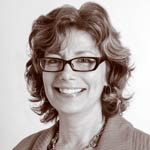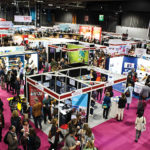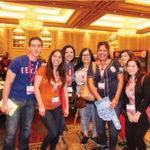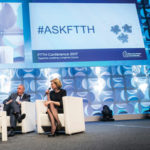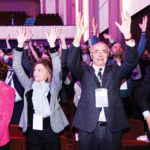
MEETING
This marks the first time the Montreal-based organization will meet in Scotland, and the first time in 50 years that the Congress will be held in the U.K. “For our team who researches and evaluates future destinations for our annual Congress,” said Valérie Guillet, SIU’s congress director, a city’s “scientific/academic/medical strengths and capabilities constitute a definite advantage.”
Recent SIU Congress host cities have included Vancouver, Fukuoka, Berlin, Marrakech, and Shanghai. In the case of Glasgow, the city’s history of medical and surgical innovations — including the discovery of antiseptics in surgery (Joseph Lister) and obstetric ultrasound (Ian Donald and Tom Brown), and the founding of the second-oldest urology unit within the U.K. (Arthur Jacob) — helped get it shortlisted. The SIU has more than 4,000 qualified urologist members from 100-plus countries, and 3,000 are projected to attend this year’s Congress.
CHALLENGES
“Our principal challenge every year is to deliver a high-quality Congress to our attendees and partners,” Guillet said. “Definitely [attracting] increased attendance is a tall challenge.”
In addition to that goal, she said, another “tricky puzzle” SIU will be tackling this year is a newly condensed meeting — from five to four days, allowing attendees to spend less time away from their medical practice. “Program-wise, it was challenging to fit [in] all the sessions,” Guillet said, “while giving delegates sufficient time to network amongst themselves, as well as adequate opportunities to interact with industry.”
INITIATIVES
While SIU is subtracting a day from its face-to-face meeting, it’s adding a virtual-learning component. “With so many urology meetings competing for attendees, we felt that the time was right,” Guillet said, to introduce a virtual meeting platform. Although a natural progression of SIU Academy — an online learning portal and library of content — the hybrid initiative represents a “bold step,” Guillet said, and is intended to convert virtual participants into members, as part of the SIU’s “intensive membership-acquisition” strategy.
After attending PCMA’s Convening Leaders 2014, Guillet came to the realization “that we rarely actually spoke to our attendees, or asked them what is important to them,” she said. So SIU will be in “full-on attendee-engagement mode” in Glasgow, making more of an effort to integrate its industry partners, and “multiplying the opportunities for interaction on the exhibit-hall floor.” Networking will take on a Scottish flavor, with a whisky tasting led by a drammolier on one afternoon and a tea-and-shortbread hour the following afternoon.
For the third year in a row, attendees will be able to use an app to access a digital Congress guide, participate in event surveys, live-polling, and session feedback, access resource documents and interactive maps, view speaker profiles, and receive notifications. And sponsors and exhibitors can showcase their products and services and connect with attendees via their interactive profiles.
Despite the app’s popularity, Guillet has found that members don’t use technology “as much as they could,” so SIU will debut a Tech Bar this year, where tech-savvy staff will introduce delegates to other useful apps and online services. And the conference format will get a makeover. “Our scientific chair, Dr. Inderbir Gill, came up with some dynamic new session formats that we are trying out this year,” she said, including “‘shifting sands’ plenaries, ‘global perspectives’ panels, rapid-fire debates, master classes in urology, and expanded surgical demonstrations.”
A final new initiative — the “SIU Take-Home Tweet” project — will give the Congress a longer shelf life. A designated group of urologists will build up to the event with some preliminary tweeting on topics and issues related to the programmed sessions, then be given a set of presentations to tweet about during the Congress. “This will create a buzz surrounding the event,” Guillet said, “and extend the dialogue and learning beyond the four days of scientific sessions in Glasgow.”
Convene’s Pre-Con/Post-Con series asks meeting planners about their challenges and how they intend to address them (Pre-Con), and then circles back around after the meeting has occurred (Post-Con) to see how well they worked out.
